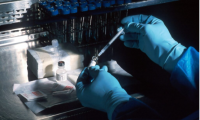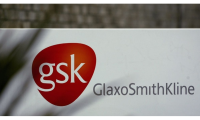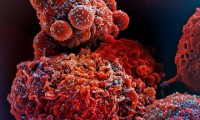-
People with Long COVID neurological symptoms found to have differences in immune cell profiles and autonomic dysfunction
- Source: drugdu
- 238
- May 8, 2023
-
NIH researchers gain new insights on rare immune deficiency
- Source: drugdu
- 161
- May 6, 2023
-
Apellis’ immune system drug hits a setback in ALS
- Source: drugdu
- 166
- April 25, 2023
-
Pregnant women show unique immune response to COVID-19
- Source: drugdu
- 114
- April 17, 2023
-
ImmuneBridge raises funds to advance new cell-based immunotherapies
- Source: drugdu
- 114
- April 13, 2023
-
GSK outlines deal to send cell therapies back to Adaptimmune
- Source: drugdu
- 262
- April 12, 2023
-
SARS-CoV-2 infection weakens immune-cell response to vaccination
- Source: drugdu
- 129
- April 6, 2023
-
Early data shows CanSinoBIO’s inhaled COVID-19 vaccine triggers immune response
- Source: drugdu
- 972
- September 1, 2021
-
Aimmune’s peanut allergy med Palforzia wins EU approval
- Source: drugdu
- 356
- December 22, 2020
-
Blocking Immune System Pathway Could Stop COVID-19 Infection, Finds Study
- Source: drugdu
- 301
- October 15, 2020
your submission has already been received.
OK
Subscribe
Please enter a valid Email address!
Submit
The most relevant industry news & insight will be sent to you every two weeks.













